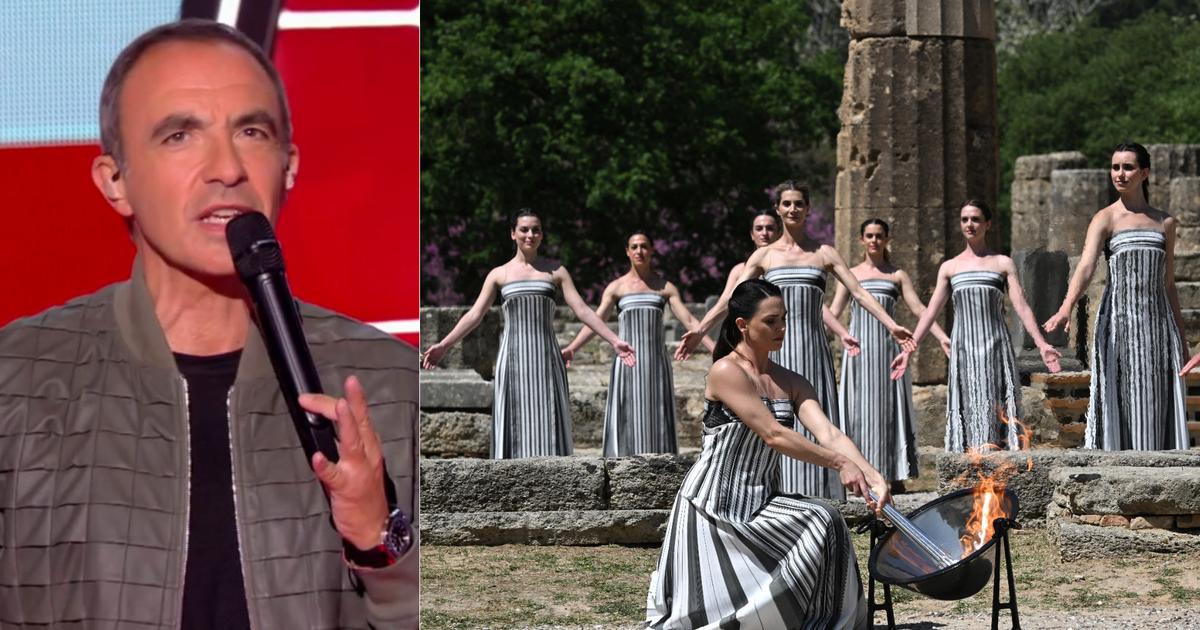It is a bone of contention that has tainted relations between the United Kingdom and Greece for more than two centuries.
The thorny subject of the Parthenon marbles in the British Museum has just been raised again by George Clooney, during a visit to Greece.
As the country prepares to celebrate the 200th anniversary of its independence on March 25, the American actor once again called on the United Kingdom to make amends and return to Greece the important collection of Parthenon marbles which have been one of the greatest treasures of the British Museum since the beginning of the 19th century.
"
While there are many objects of historical value that must be returned to their original owners, none of them are as important as the Parthenon marbles.
Said George Clooney, according to comments reported on Sunday March 7 by the Greek daily
Ta Nea
.
"
The Parthenon sculptures must be returned to their original owner
" stressed the actor.
Read also: Greece once again demands in London the return of the Parthenon marbles
The artist's commitment was praised by Janet Suzman, president of the British Committee for the Reunification of the Parthenon Sculptures, which campaigns in the United Kingdom for the restitution of the marbles.
The actress quoted by
Ta Nea
said that George Clooney's commitment to them was a positive signal: “
This is the heart of Greece's cultural heritage.
The British Museum has quarantined them, but one day it will let them go home.
He will do it because it is the right thing to do.
Invoking fictitious property is something that a reputable institution cannot continue to do without covering itself a little bit of ridicule.
"The British Museum must show"
a supreme generosity of spirit
"and a great"
moral courage
"also abounded Paul Cartletz, professor of Greek history at the University of Cambridge.
1/4 - The deities Dione and Aphrodite, marble sculpture from the west pediment of the Parthenon.
Luisa Ricciarini / Leemage
2/4 - Banquet scene, marble bas-relief from the Parthenon.
Photo Josse / Leemage
3/4 - Centaur victorious in a fight against a Lapith.
Historiated metope in marble from the Parthenon.
Luisa Ricciarini / Leemage
4/4 - Horse head by Selene, from the east pediment of the Parthenon.
Photo Josse / Leemage
A secular dispute
This is not the first time that the American actor is committed to the repatriation of Greek marbles.
George Clooney had already spoken in 2014 for the return of the collection to Greece, at the time of the release of the film
Monuments Men
, which shed light on the American group responsible for finding works of art looted by the Nazis .
If his statements had drawn him the wrath of Boris Johnson - then mayor of London -, they had also earned him the friendship of lawyer Amal Alamuddin whom he would end up marrying a few years later.
Read also: To recover the Parthenon marbles, Greece offers England to barter
The Parthenon marbles are the subject of an old dispute between Greece and the United Kingdom.
The temple sculptures and architectural elements of the temple of the Acropolis dedicated to the Greek goddess Athena were mainly carved in the years 1801-1802 under the supervision of the British Ambassador to Constantinople, Lord Elgin, during the time of the domination Ottoman from Greece.
Made between 438 and 432 BC.
AD the pediments in particular form one of the major groups of classical Greek sculpture.
The aristocrat brought back to England the two pediments of the temple, its main frieze and a good part of its historiated metopes, at least part of which is attributed to the Athenian sculptor Phidias.
The set was sold in 1816 to the British Crown, which has since exhibited them in the British Museum.
Inaugurated in 2009, the Acropolis Museum of Athens has designed in advance a vast exhibition space to accommodate all the Parthenon marbles, which Greece keeps asking for return at regular intervals.
Successive governments have all seriously questioned the authenticity of the Ottoman document brandished by the British Museum to legitimize their possession of the collection.
British resistance seems to come mainly from institutions, anxious to keep at home an invaluable treasure of classical art: in 2014, a YouGov study revealed that only a minority of Britons were opposed to the return of the Parthenon marbles to Athens. .
Other celebrities, such as Liam Neeson, have supported the repatriation of the marbles from the British Museum, while Unesco and the European Union have also called for an end to this two-century cultural dispute.
The question of the return of the Elgin marbles to Greece is more broadly part of the movement of returns, more or less late, of works illegally plundered by the European powers during the preceding centuries.
In France, a report on the return of works of art to sub-Saharan African countries was submitted to Emmanuel Macron in 2018. The National Assembly approved last October the return to Benin and Senegal of old objects preserved. at the Quai Branly museum.















